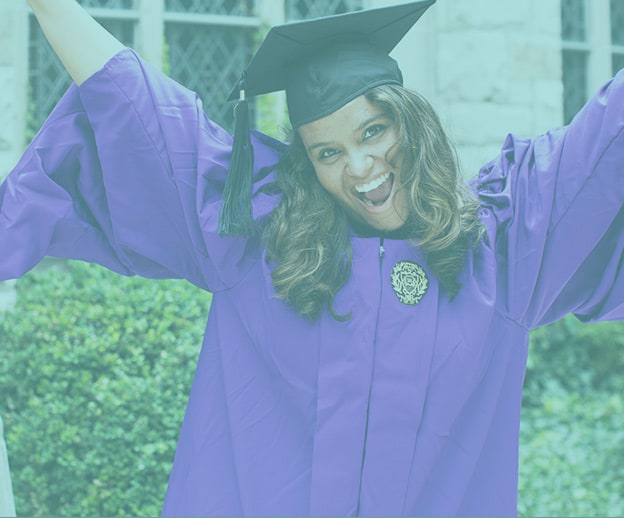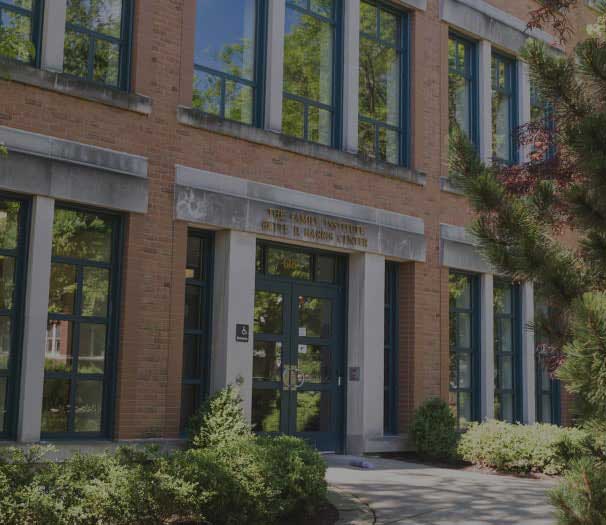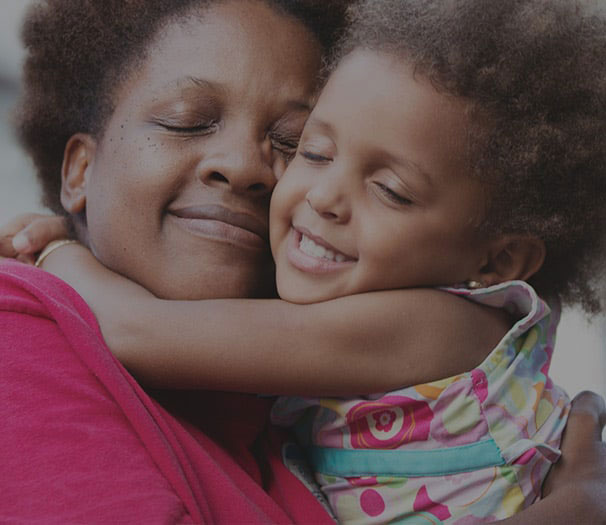Become a self-reflective clinical mental health counselor with our CACREP-accredited curriculum. We offer several options to fit your background and lifestyle, including accelerated, traditional, and part-time tracks, and a Bridge to Counseling Program for students new to the field.
The CACREP-Accredited Online Master of Arts in Counseling ProgramThe CACREP-Accredited Online Master of Arts in Counseling ProgramThe CACREP-Accredited Online Master of Arts in Counseling Program
From The Family Institute at Northwestern UniversityFrom The Family Institute at Northwestern UniversityFrom The Family Institute at Northwestern University

When you pursue your online counseling graduate degree through top-ranked Northwestern University,1 you will follow the same rigorous, high-caliber curriculum taught on campus. You will prepare for real-world practice as a self-reflective counselor through a learning-by-doing model. In addition to completing classes and coursework online, you will participate in highly collaborative in-person experiences that challenge you to reflect on your identity and how it affects your approach to counseling.
We want all aspiring counselors to achieve their goals, and the master’s in counseling online curriculum accommodates students of all levels of experience in the field. Depending on your academic and professional background, you will complete either our Standard Program or our Bridge to Counseling Program, which offers prerequisite coursework in clinical interviewing and practice.
Ready to start earning your master’s in counseling online? We encourage you to apply whether you have a background in psychology or are new to the field. You need a bachelor’s degree to apply and GRE scores are not required.
The online master’s in counseling offers four start dates annually in January, April, June, and September for both the Standard and Bridge to Counseling Programs. Depending on the path you choose, the program can be completed in 18–36 months.
Our admissions committee reviews applications on a rolling basis so you receive your admissions decision as soon as possible.
Children and adolescents who experience mental health problems need capable, caring counselors to provide treatment tailored to their developmental needs. If you want to make a difference for youth in your community, you can pursue the Child and Adolescent Specialization while earning your online counseling graduate degree from Northwestern.
The specialization teaches you how to provide effective treatment for youth while still fully preparing you to work with adults. During your second year in the online counseling master’s program, you will take two specialization courses that provide an in-depth look at child and adolescent development and treatment approaches for common mental health concerns in today’s youth. Both specialization courses are included in the total number of credits required to graduate from the master’s in counseling online program.

A Collaborative Online and In-Person Experience
Counseling@Northwestern is a highly collaborative program. You will connect with your peers, professors, and other counseling professionals during online classes, in-person immersions, and clinical training experiences near your community.
Provide direct counseling services to clients in need using knowledge gained during online classes and in-person immersions.
Celebrate your development by attending Counseling@Northwestern’s graduation ceremony.
Discover Student Perspectives
“This program taught me the foundation and ethics needed in a good counselor. I feel fully prepared to enter the field after completing the program: I know I have received one of the best educations from one of the top programs in the world.”—Stefan Young, ’21
Join Our Next Cohort of Aspiring Counselors
The final deadline for the January 2025 cohort is October 7, 2024.
Clinical Training and Placement
In-person clinical experience is a cornerstone of the preparation we provide students in the master’s in clinical mental health counseling program. While enrolled, you will complete both a Practicum and an Internship totaling 800 hours of real-world skill development.
When it is time to start your clinical training, our placement team will help you identify Northwestern-approved sites where you can work with clients. You will complete your clinical placements during six consecutive terms to gradually build your skills as you earn your online counseling graduate degree. Each placement is supervised by a licensed clinician who provides ongoing feedback. Your professors and classmates will also provide valuable insight as you reflect on your clinical experiences during weekly classes.
Read more about clinical training.
Immersion Experiences
While enrolled in the master’s in counseling online program, you will visit our Chicagoland facilities for two immersion experiences that provide in-depth training while enabling you to bond in person with your peers and professors. You will also have one online immersion experience.
New Student Immersion
The New Student Immersion (NSI) is designed to orient new students to Counseling@Northwestern. Students will receive information about the many resources available to support their success. Additionally, students will interact with one another, program staff, and core faculty while having the opportunity to tour the Northwestern University campus.
Group Dynamics Immersion
The Group Dynamics Immersion is the experiential component of the Group Counseling Theory and Practice course. During a long weekend, you will spend time leading and participating in groups while applying the concepts you have learned in the classroom.
Facilitated by Counseling@Northwestern faculty and selected supervisors, this immersion helps you:
- define your group leadership style;
- examine any biases you may have in group settings; and
- understand the roles you take on in groups.
After the immersion, you will spend the remainder of the Group Dynamics course integrating your theoretical and experiential knowledge.
Capstone Conference
Shortly before you earn your counseling master’s degree, you will complete an online capstone conference that takes the place of comprehensive exams. As you present the competencies you have learned while enrolled, you will make the transition from student to aspiring practitioner who is prepared to pursue licensure and employment in the field.
The Capstone Conference showcases our counselors-in-training at the end of their graduate program. The project encompasses a written scholarly paper and a 45-minute professional presentation that provides a comprehensive demonstration of the knowledge and skills needed to practice competently in the counseling profession. In addition to presenting their area of passion in clinical mental health counseling, students are expected to demonstrate key elements of counseling competency, including ethical principles, cultural competency, theoretical considerations, applications defined by counselor identity, and other similar factors. The conference aims to support our students as they communicate their areas of passion through highlighting their scholarly development.
The Capstone Conference is a celebration of the rigor and excellence our counselors-in-training represent as we welcome them from the role of graduate student to the role of professional clinical mental health counselor.
*Please note: Our in-person learning and clinical field experiences are central to our highly collaborative program.
Find out more about the immersions.
Meet Our Faculty
Northwestern faculty are known for enriching learning and bringing diverse perspectives and interests into the classroom. Together, they bring a wealth of experience in areas such as sport psychology, neurocounseling, substance abuse, practice with members of the LGBTIQA+ community, child and adolescent counseling, and other specialties.
As your professors weave their real-world experiences into the course discussions, you will learn best practices from multiple perspectives and gain a multicultural world view. You will also be equipped to become a competent and caring counselor, mental health advocate, and leader.
Throughout your time in the program, our faculty will connect with you during and outside of class, both online and in person, to build relationships that could last well into your career.
Meet the professors who will support your development as a counselor.
Clinical Mental Health Counselor Careers
The online Master of Arts in Counseling Program from The Family Institute at Northwestern University will prepare you to become an effective clinical mental health counselor who works with clients from various backgrounds. Some counselors work with clients affected by addictions, relationship issues, or behavioral issues in children and adolescents.
Becoming a mental health practitioner allows you to make a difference in your clients’s lives. Clinical mental health counselor jobs may be available in various settings, including:
Community mental health centers
Inpatient/outpatient clinics and hospitals
Research institutions
University student services
Career services
Private practice
The field of counseling is growing.2 Learn more about the counseling job outlook and explore some potential clinical mental health counselor career opportunities.

Ready to Take the Next Step?
Counseling@Northwestern uses an innovative, online learning platform to deliver the same rigorous curriculum as the nationally renowned on-campus program. Earn your Master of Arts in Counseling from The Family Institute at Northwestern University while making a difference in your own community.
1 Best National University Rankings. (2022). US News & World Report. Retrieved June 30, 2023.arrow_upwardReturn to footnote reference
2 Substance Abuse, Behavioral Disorder, and Mental Health Counselors. (2023). US Bureau of Labor Statistics. Retrieved July 3, 2023.arrow_upwardReturn to footnote reference




